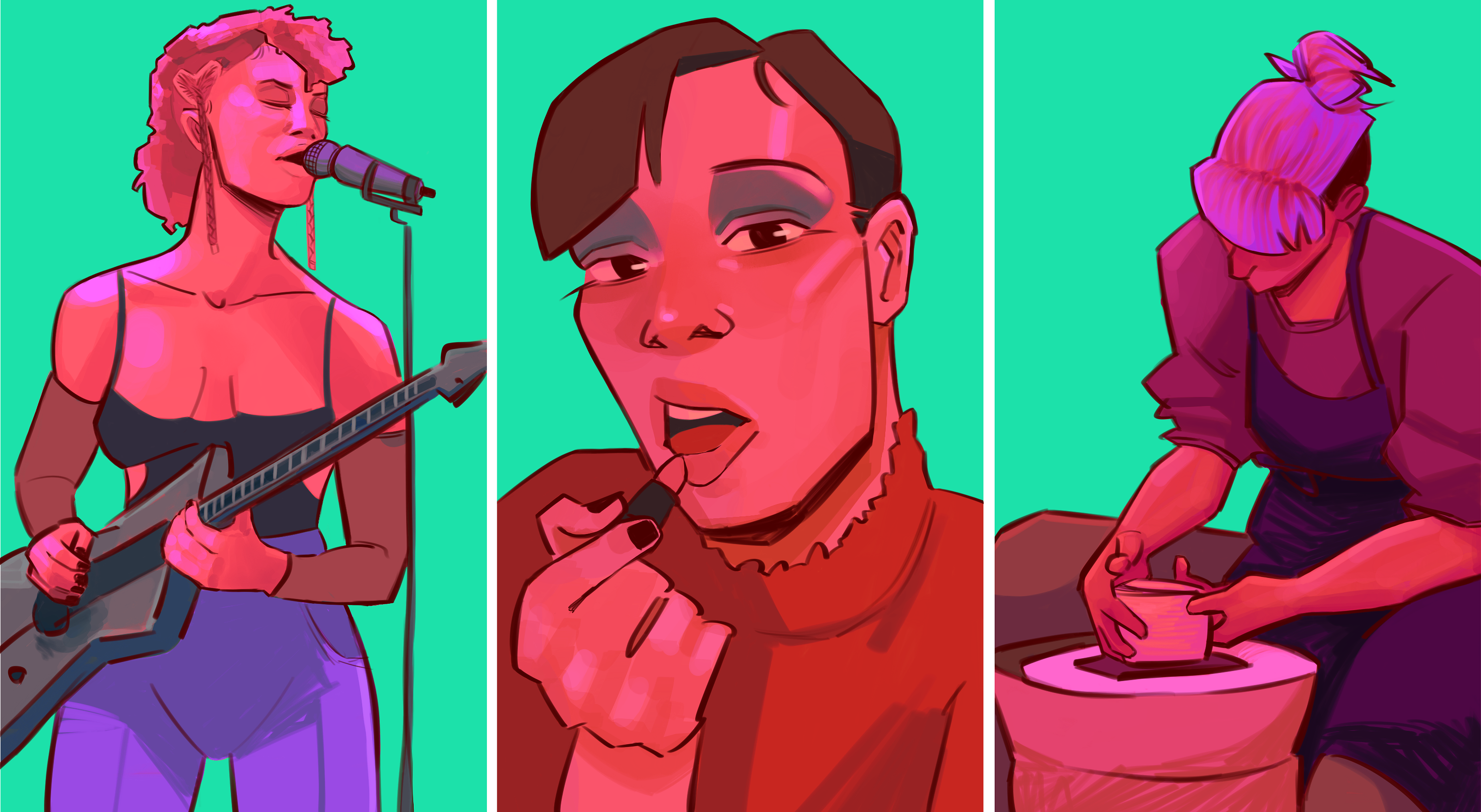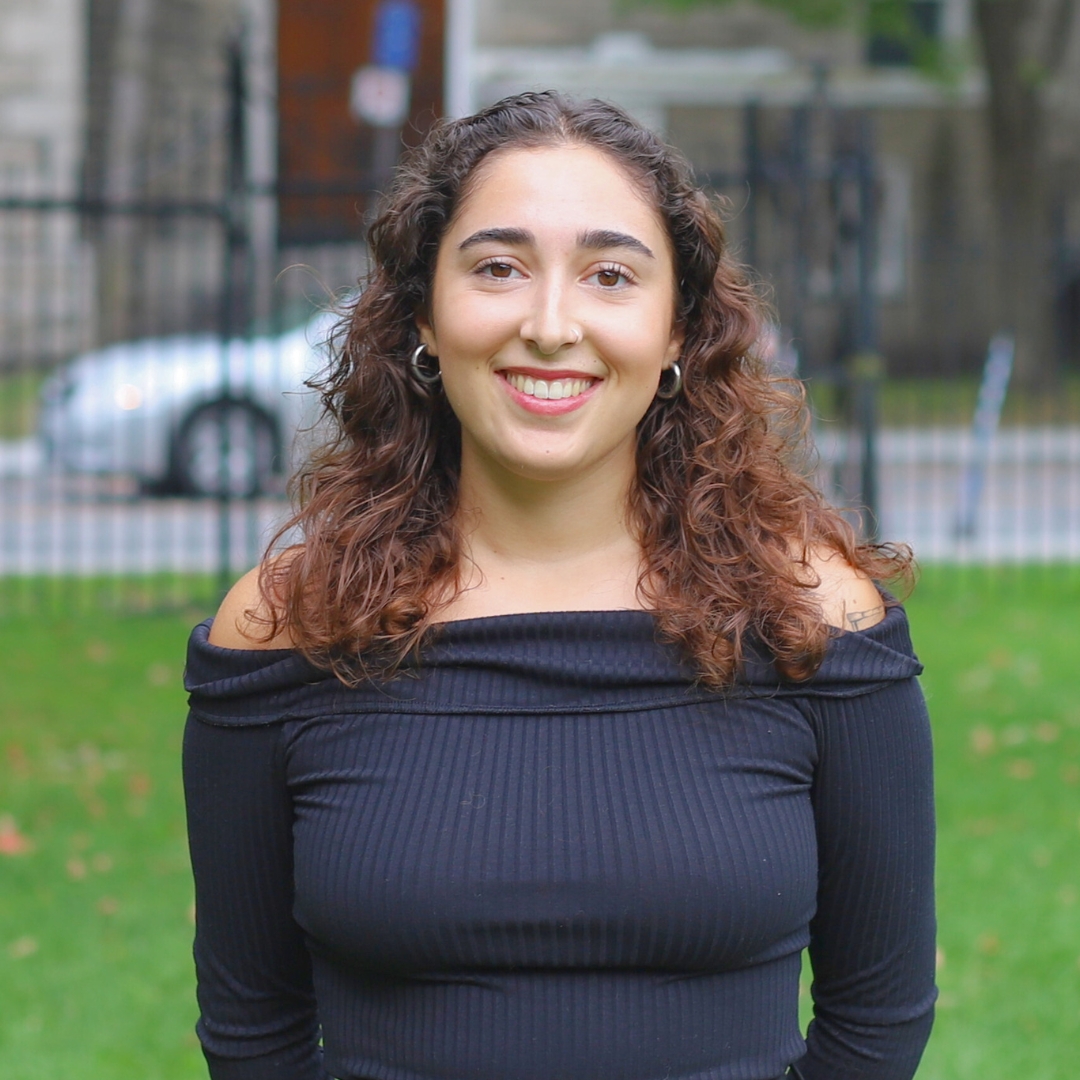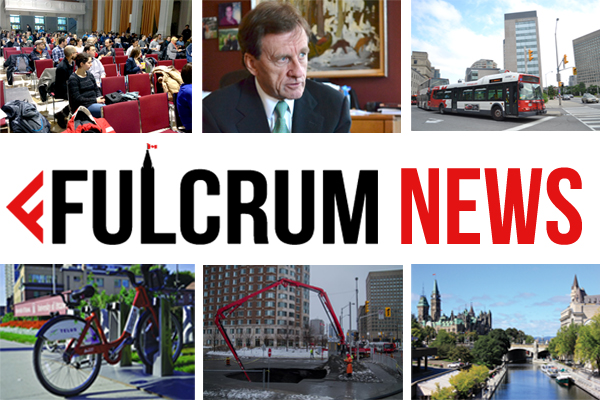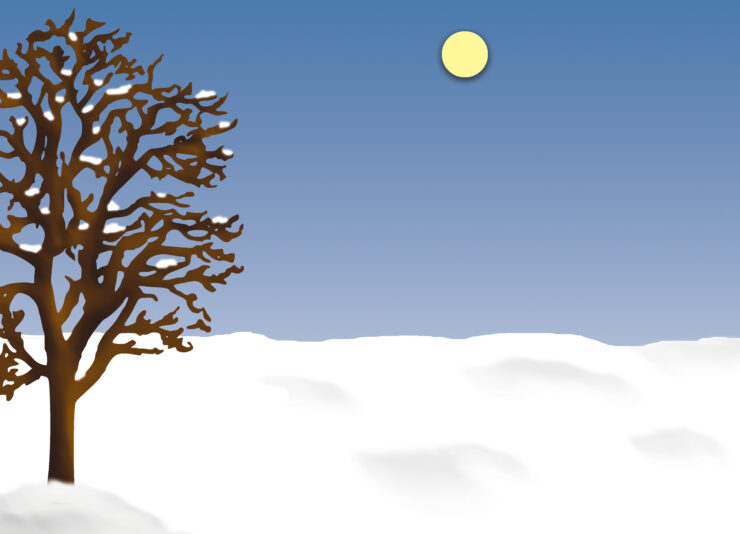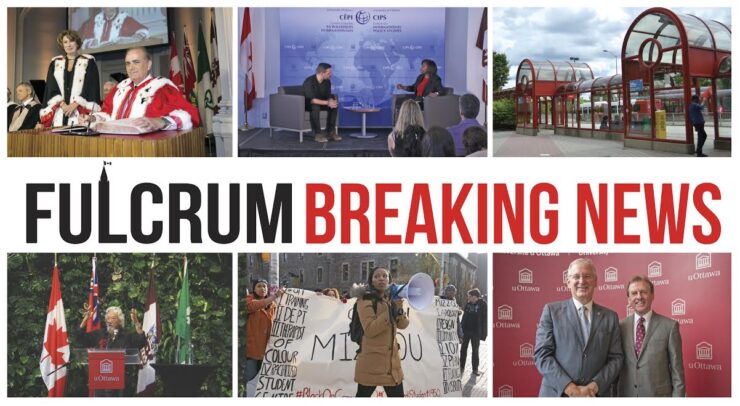Nonso Morah, a Human Rights and Conflict Studies student, directs a perfect storm of policy, poetry, and advocacy.
The Fulcrum (F): Could you introduce yourself to the student community? How might students know you from campus and how might they know your work?
Nonso Morah (NM): My name is Nonso Morah. I am currently a third-year student in the Conflict Studies and Human Rights program. But on the side, I’m a creative and I also work in politics at the Senate of Canada as an assistant.
People on campus would mostly know my work through open mics and community events. I try my best to be as active in the Ottawa community as I can. I have done various open mics with Ottawa poet Sandra Poesy and also the event group, Hors Pair Social. MayaSpoken is another poet that I’ve collaborated with a lot.
Most of my work speaks about a lot of social issues, whether it be identity or change. Another space that I frequent is the SAW gallery. I performed there a couple of times. My first ever slam had been there. So I think people who do know me it’s mostly through the student community as a student who does enjoy being around campus. They may also know me through community engagement, community outreach, and just my natural love of being around people and advocating for different things within Ottawa and beyond.
F: Could you describe your creative development?
NM: I have always been an avid lover of slam poetry growing up and where I lived in Alberta, didn’t have a poetry club. There was no slam team and if there was I was not made aware of it at any point in my life. So I just really enjoyed watching slam videos, specifically Button poetry and Def Jam. It is also where I was introduced to a lot of the music I listen to; Lauryn Hill was very popular out there, Erykah Badu, all of these people frequented Def Jam.
I wanted to be that person. I want to be up there doing that. But I was always too scared to really perform. But I did like to write. I love to write stories. I love to engage with people. I love to talk to people too. And those are just skills that I naturally had. So when I did leave home and move for school, I had no real community because I am the only one in my family who lives in Ottawa.
I really struggled to express myself in the ways I had before because I had outgrown them. So I needed to find a new medium. And I somehow found my way going back to writing. I came across open mic nights, which is something I never went to, and the first open mic night I attended changed the game for me.
It’s wild out here — being someone young and trying to stay stable while the world’s falling apart. It just felt very difficult. So I told myself — you’re gonna go be someone, you’re gonna go connect with new people. You’re gonna find a new space that’s yours alone. When I got there, it was so beautiful because it was a local event arranged by local creatives. All these people were meeting for the first time as well and I happened to be an outsider who joined and I met some of my best friends that night.
I continue to be pushed by these people. When they heard me for the first time, they ask me to consider my poetry and my art as something worth pursuing. And from there, I found myself going back to it.
It’s interesting because I’m not somebody whose art comes effortlessly and naturally. I think my poetry speaks through my being, but that’s not me always writing. I feel like poetry comes out of me and just the way I am and it’s not something I feel pressured to do, it is something I feel called to do.
F: Are there any milestones that you’re proud of that have marked that growth recently?
NM: I feel like this is a question that I have been needing to ask myself, because I’m at this period where I am just running on and am unable to take into account my surroundings. I haven’t really been able to center myself on how far I’ve come and what I’ve been doing.
The reason I gave up a lot when it came to being an artist when I was younger was that it wasn’t a pragmatic route to take. It didn’t seem like there was actual power to it beyond the vanity of intrinsic accolades that you can get. I really tried to push away, which is why my degree is very much not ‘me’ focussed. I had those ideas in my head because I didn’t see how art could serve the world.
I think one of the biggest performances I’ve ever done for Black History Month was earlier this year in February at the Senate of Canada. I was able to do a poem that was a bit punchy, calling out the fact that no matter how much I speak in an institution like this–everything is ivory for a reason. So many people will walk in here and never feel at home because it was never made for them to feel at home and be able to perform that and perform it in front of high-powered people. When you’re in it, you don’t feel you don’t see how big the room is or you don’t see how much moving power these people have because I’m constantly in that environment.
But when I sent it to my family and had teachers and younger students from my high school sharing it, I realized how big it is.
A more recent milestone is in March of 2024, my work is going to be published in an anthology. This anthology is filled with incredible Nigerian poets whom I am so excited to get to know and engage with their work. These are levels that I want to keep going and it’s cool to see the beginning and I can already feel how far there is to go.
F: I wonder if you would like to explain a little bit more about the themes that you write about or what you’re excited to perform.
NM: I think poetry is something that is very subjective and how you go about it, and for me, I do feel like I’m somebody who can’t really fake writing. If it doesn’t tug something in me then I can’t write it.
I think the most important poem I have ever written was called “The Healer” about Savanna Pikuyak. In September last year, she was killed by someone whom she was meant to live with. For another Indigenous woman to be killed like that, it made me reflect. It was so familiar because she had just moved here for school and I had recently just completed my second year living here for school.
I was so engaged with the story and the familiarity, yet also the actual pain of another loss in life, beyond the fact that she’s an Indigenous woman whose community has suffered countlessly. It made me very angry. It was like a slap in the face to the Indigenous people who have continued to live under the lingering power of British imperialism.
It is the poets, it is the speakers, it is the artists, and the creators who give accessibility to people. That’s where a lot of the power comes from there. However, sometimes I can’t say a lot of things I want to say in lieu of the fact that I’m unfortunately tied to a type of golden handcuffs due to my current state in life and aspirations to grow in politics.
F: What advice would you share for aspiring creatives?
NM: You can’t garner engagement if you do not choose to engage.
And that’s something I had to learn. I can wish and dream of being in positions all I want. But if I refuse to go out and do it, there’s only so much that can happen. And also a lot of young people. I realize that, especially poets or artists, feel like the field is too saturated. Like everyone’s a musician now, everyone’s a DJ, et cetera…
And it’s true, but not everyone’s not you. Not everyone has the perspective you have. And I think you need to play to your strengths, which is something I’m trying to do a bit more whether it’s exposing what I do as a student, creative, or policy girl. That’s my strength, and nobody else has that strength and if they do, they’re not me. Their delivery will not be as amazing as my delivery and you need to recognize that and continue to push forward. I think being mysterious is outdated if you’re trying to grow.
You need to be open to new ideas and also need to have grace with yourself. We live in a society where virality is a commodity. I’m somebody who expects to be at the highest level immediately and I sometimes get down on myself. I’m not always seeing incremental growth, but I had to recognize that that’s not why I decided to start in the first place.
I was because I wanted to engage with myself. You need to live, you need to partake in life to create, and you need to engage with every moment and every person within your life. To forget that is to take away from your art and that’s something that I think I’m constantly reminding myself of.
F: What advice or encouragement would you give to a young artist who is struggling to find the value in their message or the value in adding their voice to the multitude of voices that are already out there? I think it reflects on what you said about intention like being intentional with adding your voice. What might you suggest to that young artist?
NM: I think the first question I would ask myself if I were that person is, “Is this a message that I want to share or that I feel that people would want me to share?” I think that’s a debate that I constantly have with myself where it’s, again, this society always makes us speak, we’re always asked to have something to say, you always have to say something or you’re not doing anything if you’re not showing what you’re doing. And the moment you can answer that, that this is a message I think must be heard. I think you can go about that. Looking at the why and the why it’s important.
Sometimes we tie the message too much to the person we always tie it to ourselves but if it’s a message that matters if you have something to share, you need to remove yourself from the equation. When you make it about the person, you forget the message then it makes it a bit more difficult to share because you’re so focused on ensuring that you’re perfect.
But if it’s an important message, it’s an important message. If it’s something that someone can relate to, it’s an important message.
And I would just also say take the pressure off yourself. You don’t have to beat yourself up for not being exactly where you want to be. You are on your way there. When you work on the craft, you will inherently work on yourself.
F: How can students support your work?
NM: You can find me on Instagram and my website, I share my performances and events there. If there are any other Campus Creatives or students who would like to talk about poetry and art and would like to connect, do not hesitate to reach out.

